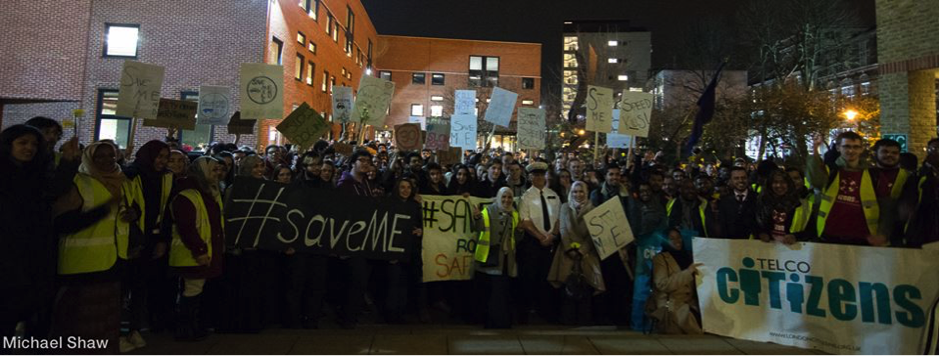Guest post from Dan Tomlinson
In the past fortnight I’ve read two books: “Marching for Justice” and “Go Set a Watchman”, the widely publicised sequel to “To Kill a Mockingbird”. One, a pamphlet on community organizing and the Salvation Army and the other a novel exploring issues of race, family and faith in the USA in the 1960s. Different though these titles may sound, they both showed me the importance of looking beyond the things that divide us. I wanted to highlight how this is an essential feature of successful community organising.
“Go Set a Watchman” returns to the Finch family of Macomb, Alabama, 20 years after the events in “To Kill a Mockingbird”. Jean Louise is now in her late twenties and has been living in New York for a number of years. She returns to the family home for a summer break and discovers that many of the people she knows and loves hold very different views on race than her own. This progressive New Yorker is forced to accept that the town she loves is, at least in part, a town of hatred and division.
 As she reflects on how this had come to pass she remembers her childhood. She remembers how she had never even stopped to think about race and had built relationships with people regardless of the colour of their skin. Jean Louise shows us that even when everyone around you is noticing, and focusing, on differences between groups of people, it is possible to be blind to these differences:
As she reflects on how this had come to pass she remembers her childhood. She remembers how she had never even stopped to think about race and had built relationships with people regardless of the colour of their skin. Jean Louise shows us that even when everyone around you is noticing, and focusing, on differences between groups of people, it is possible to be blind to these differences:
“when I grew up there were hundreds on Negroes surrounding me…never in my life was I given the idea that I should despise one, should fear one, should be discourteous to one, or think that I could mistreat one and get away with it…That is the way I was raised, by a black woman and a white man”
“Had she insight…she may have discovered that all her life she had been born with a visual defect which had gone unnoticed by herself and by those closest to her: she was born color blind”
Jean Louise would have been a fantastic community organiser because of her ability to see commonality rather than difference. Not only is this the right thing to do, it’s also the most effective way to achieve change in our communities. If we want to march for justice and win we need to challenge ourselves to do it alongside those who others might expect us to be distant from. This is highlighted in “Marching for Justice”:
“The Salvation Army won nothing alone. Even though we like to remember these stories as our triumphs, in every case there were allies, collaborators and partners – people from very different theological, ideological and social positions tethered together by a common cause. Without these partnerships there would have been no victories at all.”
Community organising is at its best when diverse groups of people join hands and say “Though we are different, we are decided: this needs to change”. We need power to make change, and it’s more powerful if people that are usually typecast as foes stand together around a common cause than if a collection of similar people do much the same thing, or if different groups simply try and stand for justice on their own.
 For example, earlier this year I took part in an action to ask local leaders in Tower Hamlets to take certain steps to make Mile End Road safer. Turnout was in three figures, but what was more impressive was the diversity of the attendees, students were standing alongside local people, notably members of local churches and mosques and we were all more powerful for it.
For example, earlier this year I took part in an action to ask local leaders in Tower Hamlets to take certain steps to make Mile End Road safer. Turnout was in three figures, but what was more impressive was the diversity of the attendees, students were standing alongside local people, notably members of local churches and mosques and we were all more powerful for it.
In our relationship building we need to look past the things that we disagree on, at least when we are first seeking to form relationships, and focus on the common ground that we share. After all, it’s only from shared places that we can march forward together.
 Daniel Tomlinson is a trained community organiser and a member of the Salvation Army in Stepney. He’s worked for the Oxford University Student Union as VP (Charity and Community) and as an economist at HM Treasury. He’s currently looking for a new job.
Daniel Tomlinson is a trained community organiser and a member of the Salvation Army in Stepney. He’s worked for the Oxford University Student Union as VP (Charity and Community) and as an economist at HM Treasury. He’s currently looking for a new job.
Follow him on Twitter: @Daniel_Tomlinson_


2 thoughts on “Though we are different, we are decided…”
Comments are closed.